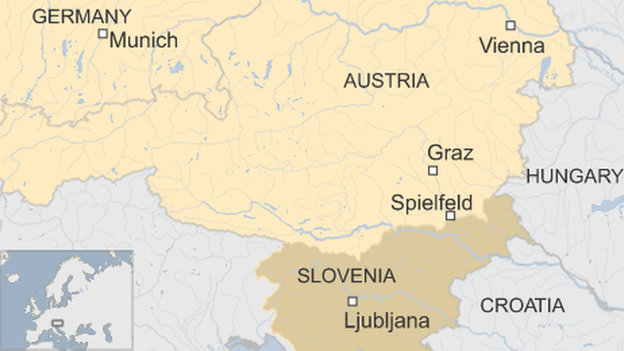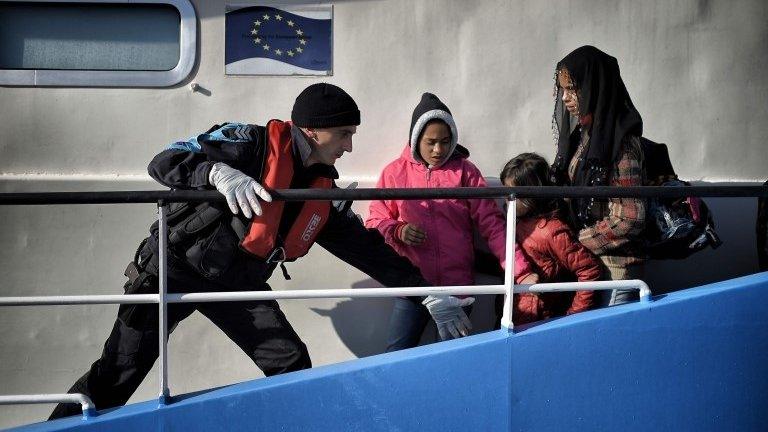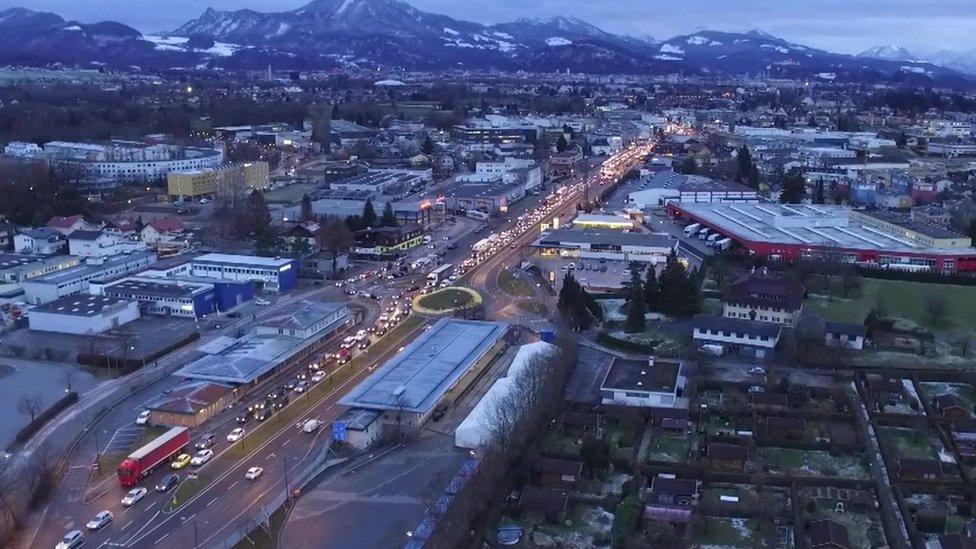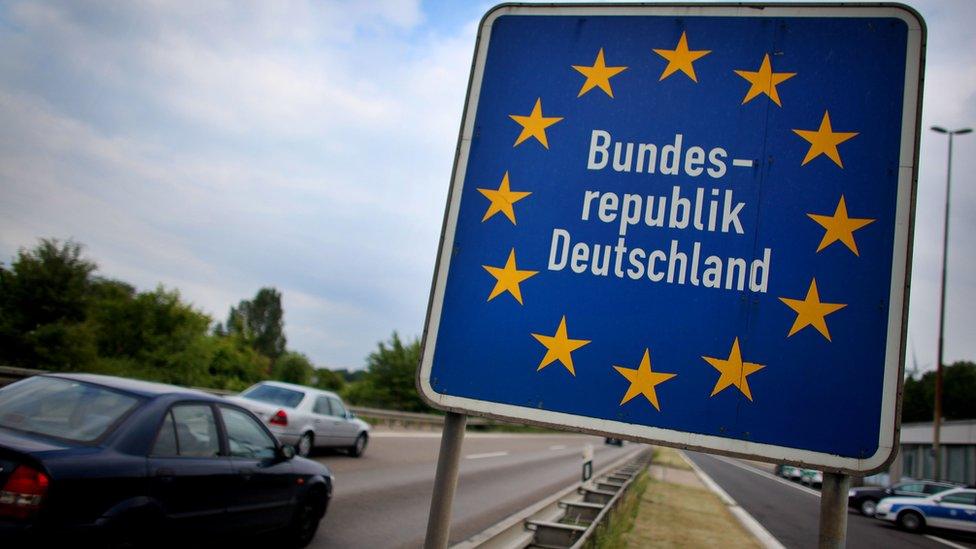Migrant crisis: Austria asylum cap begins despite EU anger
- Published
The BBC's Bethany Bell reports from Austria's Spielfeld border control centre
Austria's daily cap on the number of migrants and refugees allowed into the country has come into force.
Just 80 asylum applications will be accepted each day at Austria's southern border, after which it will shut.
The European migration commissioner has described the measure as "plainly incompatible" with European Union law.
EU leaders have announced they will hold a summit in early March with Turkey to attempt to seek fresh solutions to the crisis.
"The EU-Turkey action plan is our priority," European Council President Donald Tusk said at an EU gathering in Brussels.
EU migration: Crisis in seven charts
The EU has pledged €3bn (£2.3bn; $3.3bn) to Turkey in return for housing refugees on its territory.
More than a million people arrived in the EU in 2015, creating Europe's worst refugee crisis since World War Two.
The majority of migrants and refugees have headed for Germany via Austria, which saw 90,000 asylum claims last year, equivalent to 1% of its population.

At the border: Bethany Bell, BBC News, Spielfeld

There are concerns that the new daily limits on asylum seekers here at Austria's southern border will lead to backlogs of migrants in Slovenia.
But police here have told me they will close the border if more than 80 people claim asylum here in a day, or if more than 3,200 want to transit through to neighbouring countries.
However, they also say that since the establishment of the new border control centre at Spielfeld, those numbers have not yet been reached.
Austria's leaders fear that is just a matter of time, unless an EU-wide solution can be agreed. Many locals, concerned about the increasing number of new arrivals, agree.
Others say wealthy Austria is more than able to deal with the refugees. And they are concerned that the hard-won freedom of movement between Austria and Slovenia is being eroded.
Teaching migrants how to behave


Vienna says the daily limit is needed because the EU plan for Turkey to restrict the number of migrants leaving for Europe is not yet working.
Last year, 476,000 people applied for asylum in Germany, although the final figure is likely to be far higher. The highest number in the EU according to population size was in Sweden, where some 163,000 people sought asylum.
Sweden has now imposed border controls to reduce the influx and said on Thursday it was planning to house some asylum seekers on a cruise ship because of a lack of facilities.
The EU's migration commissioner, Dimitris Avramopoulos, has written to Austria's interior minister, saying the cap is plainly incompatible with Austria's obligations under EU and international law.
European Commission President Jean-Claude Juncker criticised the Austrian move, remarking that "solo national approaches were not recommended".
'Dysfunctional'
On Thursday, about 900 migrants were rescued near the Greek island of Lesbos, the EU border agency Frontex said. More than 83,000 people have reached the Greek islands since the start of 2016, according to the UN, external.
The spokesman for the United Nations Refugee agency in Geneva, William Spindler, said he understood why countries were acting independently but that it would not solve the problem.
"We are very sympathetic to the situation of Austria but the fact is that the system in Europe at the moment is dysfunctional and as a result some countries have started to take unilateral decisions," he told Newsday on the BBC World Service.
"And this is not going to address the problems faced but only shift them to other countries because the responsibility for protecting refugees cannot be borne only by a few countries."
Turkey is home to nearly three million refugees, most of them from Syria.
Many of them pay smugglers thousands of dollars to make the crossing to Greece. They then head north, trying to reach Germany and Scandinavia.
A note on terminology: The BBC uses the term migrant to refer to all people on the move who have yet to complete the legal process of claiming asylum. This group includes people fleeing war-torn countries such as Syria, who are likely to be granted refugee status, as well as people who are seeking jobs and better lives, who governments are likely to rule are economic migrants.
- Published18 February 2016

- Published17 February 2016

- Published24 April 2016
